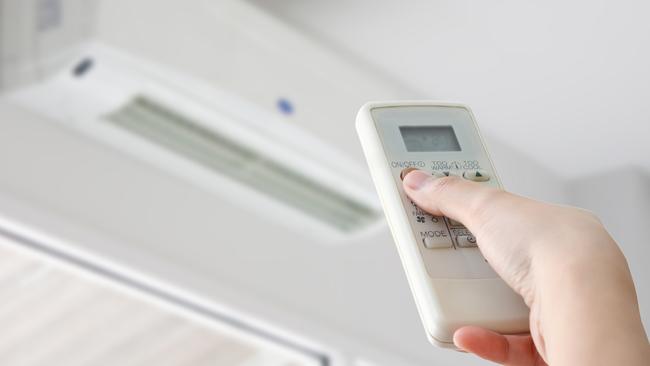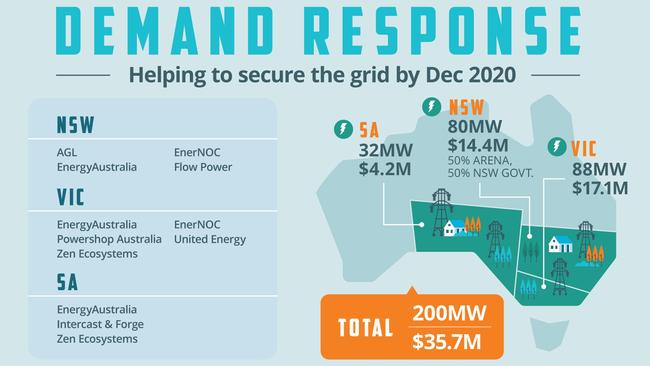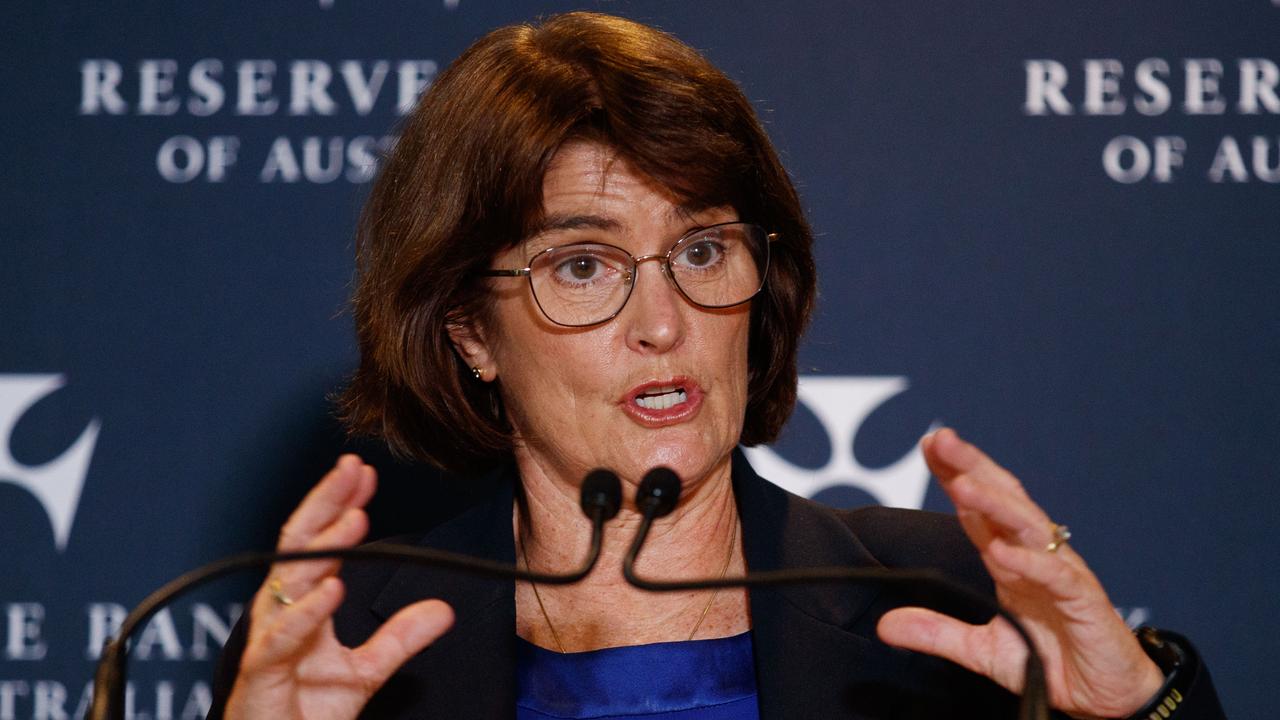Households will be paid to reduce power consumption during peak periods
WOULD you turn your air conditioning off if the government sent you a text message? A new program aims to reduce power consumption.

Budgeting
Don't miss out on the headlines from Budgeting. Followed categories will be added to My News.
THOUSANDS of Australian households will be paid to keep their air conditioning off during times of peak demand.
The Turnbull Government has announced the trial of a new program that will provide incentives such as rebates, for businesses and households to reduce their electricity use during peak periods.
The government has been trying to find a way to keep the lights on in states such as South Australia, Victoria and NSW as coal-fired power stations close down and more pressure is put on the network.
It now wants consumers to do their part — and sign up to reduce their electricity by turning off their appliances.
Households that sign up will be sent text messages during peak times asking them to turn down their air conditioning, use a barbecue instead of electric stovetop and to conserve energy in other ways.
Over the next three years, 10 pilot projects across the three states will pay users to reduce their electricity consumption during short periods.
This is aimed at freeing up electricity supply during extreme peaks — such as summer heatwaves or during extreme weather events and blackouts.
Tens of thousands of households are expected to participate in the demand response initiative in exchange for cheaper power bills.
EnergyAustralia and AGL will offer their customers the ability to sign up and those that reduce their consumption will be rewarded with money off their bill or they can get vouchers if they choose.
Residential households will have to install smart meters to measure their usage. The hardware will have optional user overrides.
The pilot projects will also involve installing remote monitoring and control devices in commercial and industrial businesses — such as cold storage facilities, manufacturing plants and commercial buildings.
An AGL spokeswoman said the project was expected to harvest 20 MW of electricity from its customers, 3 MW from residential households and 17 MW from commercial and industrial customers.
EnergyAustralia is expected to contribute a total of 50 MW from its program.

The Turnbull Government, through the Australian Renewable Energy Agency (ARENA), is providing $28.6 million for the trial with the Australian Energy Market Operator (AEMO).
A further $7.2 million provided by the NSW Coalition Government will help fund NSW-based
projects.
By 2020 the program is expected to deliver 200 MW of capacity during times of peak demand, which is double the capacity of Elon Musk’s 100 MW battery farm in South Australia.
“Through this initiative, we’ve been able to build a virtual power plant the size of two of
Tesla’s giant 100 MW batteries in a matter of months for a fraction of the cost of building
a new power station,” ARENA chief executive Ivor Frischknecht said.
“Demand response will not only ease the strain on the electricity grid and prevent blackouts — these projects will also put money back into the pockets of Australian businesses and households, helping to reduce their energy costs and emissions.”
ARENA will also trial other innovative technology and behaviour change programs including voltage control, remotely controlling air conditioning and app notifications.
The projects will undergo testing in November and be up and running by December 2017. It’s expected that 143 MW will be available for dispatch into the grid this summer.
Environment and Energy Minister Josh Frydenberg said in a statement that demand response had been used overseas successfully in countries such as the US and New Zealand, as a cost effective way of managing demand and price spikes, as well as avoiding unplanned outages.
charis.chang@news.com.au | @charischang2
Originally published as Households will be paid to reduce power consumption during peak periods



